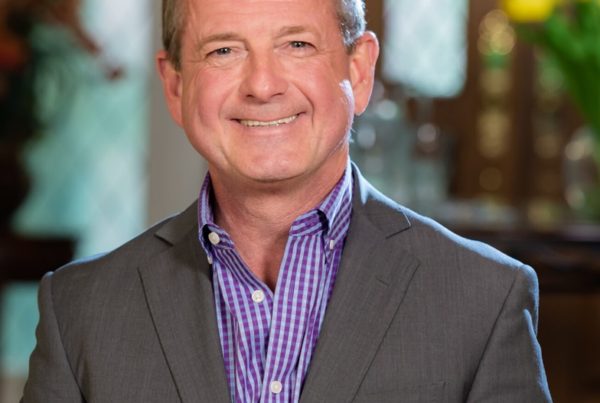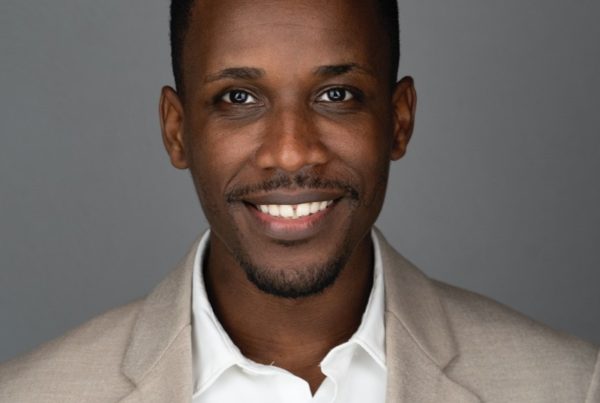Podcast: Play in new window | Download
Subscribe: RSS
How do you scale your leadership and team culture as your startup business grows?

Alisa Cohn
Named the Top Startup Coach in the World at the Thinkers50/Marshall Goldsmith Global Coaches Awards in London, Alisa Cohn has been coaching startup founders to grow into world-class CEOs for nearly 20 years. A onetime startup CFO, strategy consultant, and current angel investor and advisor, she was named a top 30 “Global Guru” and has worked with startups such as Venmo, Etsy, The Wirecutter, Mack Weldon, and Tory Burch. She has also coached CEOs and C-Suite executives at enterprise clients such as Dell, Hitachi, Sony, IBM, Google, Microsoft, Bloomberg, The New York Times, and Calvin Klein.
Alisa is a sought after speaker and has keynoted events for companies such as IBM, PwC, Dell, Standard Chartered Bank, and Citi. Inc named Alisa one of the top 100 leadership speakers.
Alisa is a guest lecturer at Harvard and Cornell Universities, Henley Business School and the Naval War College. Marshall Goldsmith selected Alisa as one of his Marshall Goldsmith 100 Coaches – a gathering of the top coaches in the world. She is the executive coach for Runway–the incubator at Cornell NYC Tech that helps post-docs commercialize their technology and build companies. She serves on the board of the Cornell Advisory Council. She has coached public and political figures including the former Supreme Court Chief Justice of Sri Lanka and the first female minister in the transitional government of Afghanistan.
Her articles have appeared in HBR, Forbes, and Inc and she has been featured as an expert on Bloomberg TV, the BBC World News and in the New York Times. A recovering CPA, she is also a Broadway investor in productions which have won two Tony Awards and is prone to burst into song at the slightest provocation.
What We Discuss with Alisa Cohn in This Episode
- How she became the #1 Startup Coach in the world
- Scaling your leadership and your startup company
- How startup CEOs need to show up differently than founders
- Maintaining the same family culture as your startup grows
- Managing and pivoting through the COVID pandemic
- Questions to shift your mindset
- The mind-body connection and peak performance
Transcript Highlights
How Did You Become Named The #1 Startup Coach In The World?
It’s a culmination of things I really care about. I became a coach 20 years ago because I wanted to make a difference. I had this idea in my head that I mattered that I was in the world. When I met a coach, I decided that was what I wanted to do. I took coach training and put one foot in front of the other. Nobody handed me anything. I hustled and built a business.
I moved to New York City 13 years ago where I got very involved with the startup community and working with CEOs and it grew from there. I really passionate about startups and helping CEOs understand how they can scale their leadership alongside the scale of their company.
Scaling Leadership and Scaling Your Startup Company
I’m writing a book right now called “From Startup To Grown Up” and I’ve divided it into three sections. It’s about managing you, the team and the business. All of those areas need to scale. Scaling is about having a small number of employees which grows and a small number of customers which you can manage on a spreadsheet, but as that grows you’ll need a different kind of database to handle that. Customer support issues, the way you build infrastructure inside of the company – that is what leaders really care about.
As a coach, we back up and ask, how are you managing the employees around you? How do you hire them? How do you help them to be proactive and motivated? How do you get them to be headed in the same direction? That has to do with managing yourself as the CEO. How are you handling your own emotional state? How do you manage and change the way you communicate as the company grows? Also, how do you manage the employees individually as well as the company as a whole?
How Do CEOs Need To Show Up Differently as Opposed to as a Founder?
It’s a key question. It’s like, what hat are you wearing now? The founder hat is often a very inspirational hat and a storytelling hat. The leader hat is about where you’re going and helping people create clarity when there’s a lot of ambiguity. Sometimes as the CEO you have to wear the manager hat, which is about holding people accountable, making sure you’re hiring the right people, and unfortunately making decisions about firing people.
It’s also about managing your team as a meeting – communicating, one on one, executive team meetings, all hands meetings, and finding ways to repeat your story whereas when you were seven people in the room together that wasn’t the most important thing. When you’re 150 people or 500 people you suddenly need to ensure your message is the right message and is landing for people all the time.
How Do You Maintain the Same Family Feel of 7 employees with 500 – or Can You?
Yeah, 500 or 5000? Sometimes startups grow very quickly to that scale. It’s such an important question because people who join startups want to be part of that family. Where they’re eating pizza together at 10 o’clock at night, and where they’re all jumping on to help support the customer. It’s sort of this tribal experience of going through the early stage together. The truth is that you have to be able to expand the culture beyond that family of the initial founding team. Ultimately you need people who have done this before, who are big company people and great at process. Also, who have home lives and don’t want to be with you at 10 o’clock at night because they have kids at home.
So it’s about making room for a new set of people but still maintaining the tenets which are important to you, which may be transparency, dignity in people first, and it may also be that we have to have fun around here. But that’s going to look different at 7 than at 700 or 7000.
Managing Through A Pandemic
I talked to a CEO and Founder of Bio-Tech company and his point was that he had used empathy to navigate through this crisis (pandemic), he could see into their homes and have real talk with them, because of health issues and concerns, that I’ve never been able to before. It has broken through many of us and we’re more bonded now. I don’t want to go back to the other way and we’re not going back to the other way.
So in some ways, this intense experience we’ve all gone through together has been an opening for many of these boundaries – for good.
Coming back to the primal, familial feel, if you think about startups or starting your own, you do have to think about them in multiple inflection points. In the early days, you want people who are proactive, excited and are going to do anything you want and anything they want. You’re making it up and it’s so exciting. You’re together all the time. There’s a sense of “we’re in this together, and we’re all doing everything.”
At some point that model just breaks. It’s at 10-15-20 people when you cannot all fit into the same room and can’t all go to the same meetings, because you need to be able to leverage time. From there, you need to build systems, processes and structures that are going to sustain a bigger business. Not everyone can decide on everything or weigh in on everything. That literally changes the shape, culture and type of employee that is going to be successful here.
That means you need to bring in people with more experience – not like huge company people, but people who can create structure out of the chaos. Over time, you need even more experienced people who can be specialists in a certain domain.
For the folks who stay, they hopefully get the benefit of people who are mentoring and guiding them and can really teach them the craft of what they’re doing – whether it’s marketing, technology etc. Or they may want to go off and found their own startup, or go off to another early stage startup.
I was speaking to a client who said you didn’t like the big company feel and there was only 75 employees. The key is your own self-awareness. The more you can understand what makes you tick and what’s going to work for you, the more you can choose the right environment. It’s also important as a CEO for you to know where you get stuck.
Pivoting During the COVID Pandemic
I think about Ram Dass, a spiritual leader and meditation teacher. He just died recently but about 10 years ago he had a stroke. So he’s very enlightened and spiritual, and he said about his stroke, “It was the ultimate test and I failed.”
That’s why I feel about the pandemic personally. I live in New York City, but fled out to the suburbs where my boyfriend lives on March 13th. I spent the next two weeks screaming and carrying on, yelling and being upset, and thinking it shouldn’t be this way, it should be different. Resisting reality.
After a couple of weeks, I thought, well this appears to be real so I better figure this out. My inner wisdom – wise self – does sometimes talk to me through a specific voice in my head. So the specific voice in my head said, “Alisa, do not waste this time. You are never going to get this kind of time back. Also, this is going to end at some point. You’re going to want to look back on this and be proud of how you spent your time.”
What does that mean? Two things. First of all, my main focus was to partner with my coaching clients was to shepherd them through this crisis. All the things I had been training for. Secondly, for me personally there has been a lot of things that I thought, I’ll do that at a different time, and when I have time. This is the time. I told myself, you’re never going to get this time back, to sit and think and write. So I got to work on doing those things.
With my clients who are startup entrepreneurs, they had to figure out, where am I? The CEOs had to immediate figure out how they’re teaming were doing, and how to pull together their teams. We quickly got into a communication system where everyone was working remotely. I helped them think about how to settle themselves and settle the team. I also wrote an article for Forbes about this called, “How To Plan For A Future That You Can’t Plan For.”
I helped them with scenario planning, supported them, got into a rapid communication system, and am really happy to say that they were able to focus on the opportunity here. A lot of my clients were like, “fantastic” I’m so glad this is happening because we’re going to be able to accelerate this system, program, or we had to reconfigure our business model anyway.
There’s still a lot of uncertainty in the world but there’s a sense of a plan and where they’re going. There’s also a bulletproof nature. We have to be able to run our business if there’s a pandemic, or there’s not; if we’re at home or if we’re working in the office.
The other side, was that I said I wanted to build courses. So I recorded a course for LinkedIn learning, and a course called, Learn To Love Networking, for Knowable a new startup which is producing audio courses. I signed my book contract and now I’m working on my book which I’ve been wanting to do for a long time. I also became an amateur rap star by producing a rap video called The Work Is In You, which was just for fun and a passion project.
This whole notion of every day is day one – I really resonate with that. We all have the opportunity at any moment to start over. Even right now at 1:33pm EST. You can take on that energy any time and think about what you could accomplish if you lived your life that way.
What are Questions That Get You Into That Mode of Every Day Is Day One?
- What is the opportunity here?
- What would make you proud if you looked back on it three months from now?
- What is your highest and best use (of this time)?
- Who did you say you wanted to be in service of your life, as a parent, as a leader, or as a worker?
- See also Alisa’s free download: Questions To Spark Conversation.
Talk About the Mind-Body Connection and Peak Performance
My journey of fitness is 20 years in the making. I grew up overweight and out of shape. As I began to be my own person, I realized that I wanted to be in shape and move around. So I began the journey of fitness and then realized that fitness helps my mood. I feel better when I do my fitness. I became a runner and that was great. Sadly, I developed osteoarthritis in my right knee and my MRI doctor said, “Give me your running shoes, you’re done.”
I cried my eyes out. Then I thought, “This is an opportunity. This is the best thing that ever happened to you. You knew you were over-training. You should have done more of your whole body. You should have hired a trainer. This is a sign.” So I found a trainer and a kettle bell coach. He loves kettle bells, I love him, and I love kettle bells.
Over time, you see how being strong helps your mood, confidence, and the discipline of it every day gives you something to structure yourself around. It’s also about trying and not succeeding, and then trying and succeeding, understanding how you have to wave the load. Also the combination of tension and relaxation is healing in and of itself. And oh by the way, when you get strong enough, you can run. The notion that someone gave me a limitation – I found a way around it.
All of that is empowering. As a women lifting very heavy weight is extremely empowering. During the pandemic I decided to do my series on Instagram called #kettlebellquarantine so show everybody that even though we’re stuck at home, we can still lift heavy weights.
Episode Resources
- Free Download: Questions To Spark Conversation
- Book From Startup to Grown up (Available Oct 2021)
Connect With Alisa Cohn
- Website: AlisaCohn.com
- LinkedIn: https://www.linkedin.com/in/alisacohn
Did You Enjoy The Podcast?
If you enjoyed this episode please let us know! 5-star reviews for the Leaders Of Transformation podcast on Apple Podcasts, Spotify, Pandora or Stitcher are greatly appreciated. This helps us reach more purpose-driven entrepreneurs seeking to make a positive impact in the world. Thank you. Together, we make a difference!
Additional Episodes You May Like
- 361: Alain Hunkins: Cracking The Leadership Code
- 323: Christine Comaford: How To Increase Your Emotional Resilience In Uncertain Times
- 308: Frank Fiume: How To Grow Your Movement Faster Through Franchising
- 257: Karen Walker: CEO Secrets To Sustainable Business Growth
- 166: Dorie Clark: Embracing Entrepreneurship










